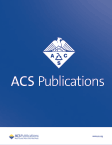Abstract 2607: Dual payload immunochemotherapy to treat CD276 positive cancers
IF 3.4
Q2 PUBLIC, ENVIRONMENTAL & OCCUPATIONAL HEALTH
引用次数: 0
Abstract
The Cancer Genome Atlas (TCGA) dataset showed higher level of CD276 (B7-H3) transcript in multiple cancers, including triple-negative breast cancers (TNBCs), non-small cell lung cancers (NSCLCs) and other cancers, than normal tissues. Our immunohistochemistry staining of hundreds of patient tissue microarrays confirmed the high expression of CD276 surface receptor in >60% of TNBC and >70% of NSCLC while minimal or low expression in 33 normal organs or tissues. This study aims to develop and evaluate a novel treatment strategy, i.e. anti-CD276 mAb-dual payloads conjugate (DualADC), as immune-chemotherapy to treat CD276-positive TNBCs and NSCLCs. First, a new CD276-targeting monoclonal antibody (mAb) capable of delivering payloads and upregulating tumoral immunity was developed and engineered. Then, a new platform to concurrently conjugate both traditional cytotoxic payload and immunoregulating regent with one CD276 mAb (DualADC) was established. Our evaluations showed that this targeted therapy effectively killed multiple subtypes of TNBC and NSCLC, significantly upregulated immune functions in tumor microenvironment, and reduced tumor burden by up to 90-100% in seven animal models (including patient-derived xenograft). The post-treatment analysis using single-cell RNA sequencing, Luminex multiplex cytokine assay, whole blood, histology and histopathology analysis demonstrated an integrated anti-cancer mechanisms and minimal systematic toxicity. Altogether, our study suggested that the 276-DualADC could provide a promising targeted chemo-immunotherapy for CD276-postive cancer patients. In future, translational investigations will be performed to determine the toxicology, optimal dose, and treatment strategy, and the combination with other therapy will also be evaluated. Citation Format: Zhuoxin Zora Zhou, Jiashuai Zhang, Lufang Zhou, Xiaoguang Margaret Liu. Dual payload immunochemotherapy to treat CD276 positive cancers [abstract]. In: Proceedings of the American Association for Cancer Research Annual Meeting 2024; Part 1 (Regular Abstracts); 2024 Apr 5-10; San Diego, CA. Philadelphia (PA): AACR; Cancer Res 2024;84(6_Suppl):Abstract nr 2607.摘要 2607:治疗 CD276 阳性癌症的双载荷免疫化学疗法
癌症基因组图谱(TCGA)数据集显示,与正常组织相比,CD276(B7-H3)转录本在多种癌症(包括三阴性乳腺癌(TNBC)、非小细胞肺癌(NSCLC)和其他癌症)中的表达水平较高。我们对数百个患者组织芯片进行的免疫组化染色证实,CD276表面受体在大于60%的TNBC和大于70%的NSCLC中高表达,而在33个正常器官或组织中表达极少或低表达。本研究旨在开发和评估一种新型治疗策略,即抗CD276 mAb-双有效载荷共轭物(DualADC),作为治疗CD276阳性TNBC和NSCLC的免疫化学疗法。首先,开发并设计了一种新型 CD276 靶向单克隆抗体 (mAb),该抗体能够递送有效载荷并上调肿瘤免疫。然后,我们建立了一个新平台,将传统的细胞毒性有效载荷和免疫调节调节剂同时与一种 CD276 mAb(DualADC)结合在一起。我们的评估表明,这种靶向疗法能有效杀死多种亚型的 TNBC 和 NSCLC,显著调节肿瘤微环境中的免疫功能,并在 7 种动物模型(包括患者来源的异种移植)中将肿瘤负荷减少高达 90%-100%。利用单细胞 RNA 测序、Luminex 多细胞因子检测、全血、组织学和组织病理学分析进行的治疗后分析表明,该药物具有综合抗癌机制,且系统毒性极低。总之,我们的研究表明,276-DualADC 可为 CD276 阳性癌症患者提供一种前景广阔的靶向化疗免疫疗法。今后,我们将开展转化研究,以确定毒理学、最佳剂量和治疗策略,并评估与其他疗法的联合应用。引用格式:周卓欣,张家帅,周璐芳,刘晓光。双载荷免疫化疗治疗CD276阳性癌症[摘要].In:美国癌症研究协会 2024 年年会论文集;第一部分(常规摘要);2024 年 4 月 5-10 日;加利福尼亚州圣地亚哥。费城(宾夕法尼亚州):AACR; Cancer Res 2024;84(6_Suppl):Abstract nr 2607.
本文章由计算机程序翻译,如有差异,请以英文原文为准。
求助全文
约1分钟内获得全文
求助全文
来源期刊

ACS Chemical Health & Safety
PUBLIC, ENVIRONMENTAL & OCCUPATIONAL HEALTH-
CiteScore
3.10
自引率
20.00%
发文量
63
期刊介绍:
The Journal of Chemical Health and Safety focuses on news, information, and ideas relating to issues and advances in chemical health and safety. The Journal of Chemical Health and Safety covers up-to-the minute, in-depth views of safety issues ranging from OSHA and EPA regulations to the safe handling of hazardous waste, from the latest innovations in effective chemical hygiene practices to the courts'' most recent rulings on safety-related lawsuits. The Journal of Chemical Health and Safety presents real-world information that health, safety and environmental professionals and others responsible for the safety of their workplaces can put to use right away, identifying potential and developing safety concerns before they do real harm.
 求助内容:
求助内容: 应助结果提醒方式:
应助结果提醒方式:


